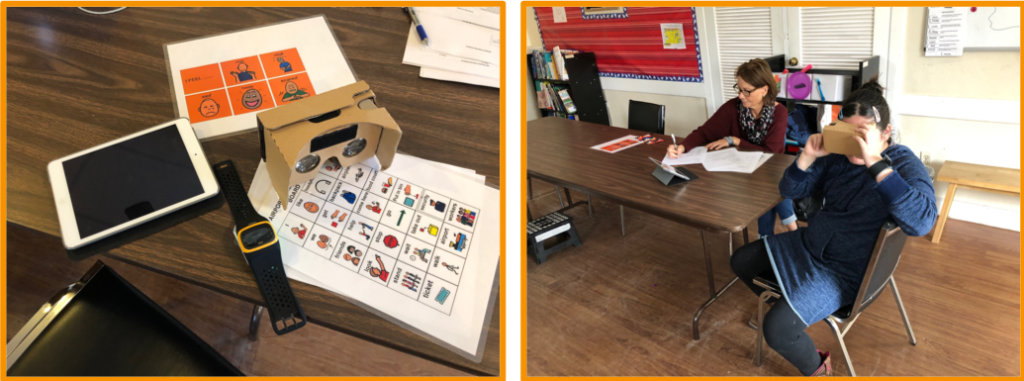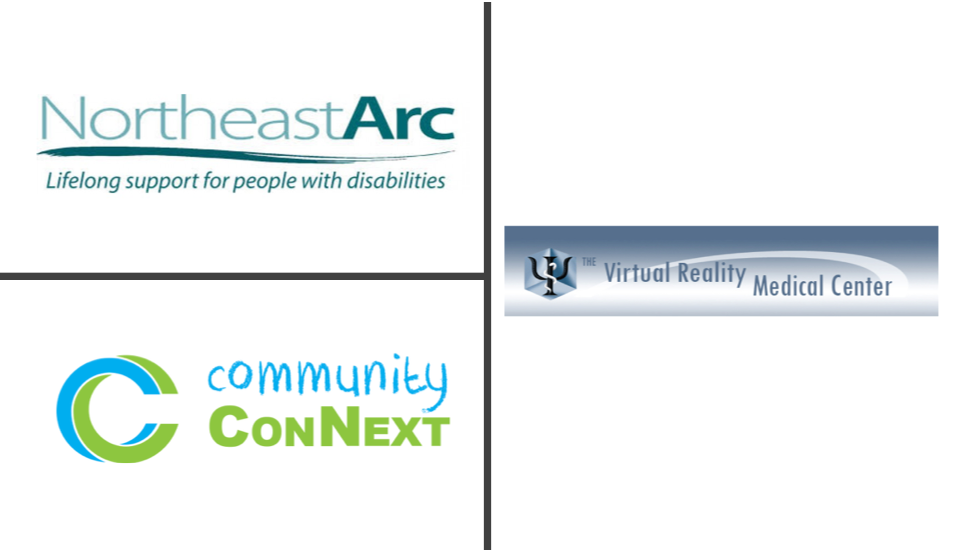Intro:For adolescents and young adults with autism, air travel is an important activity of daily life. It is a necessary skill for modern life. From school, work, or vacation, air travel is important for living independently. Also, for autistic individuals airports can elicit stress and anxiety. Functional communication (i.e. expressing basic wants and needs) is important to overcoming the unpredictability of theses scenarios.
Methods:Three VR air travel training sessions were administered to 7 adolescents and young adults once per week for three weeks. To assess functional communication, we tracked activity specific vocabulary and administered a retell test at the end of each session. Heart rate tracking and clinical observations was also performed.

Results & Conclusion:Participants activity specific vocabulary improved 37% overall. On average, activity comprehension improved 10% and clinical observations cited increased interaction with virtual avatars and commentary as sessions progressed. Overall, results strongly indicate feasibility of VR-based air travel training in autistic adults. Future research will develop and test myriad virtual contexts that support the unique needs of autistic adults, such as interview training, employment training, and community integrations skills (i.e. public transportation, social interaction, grocery store shopping).
Our partners include:
